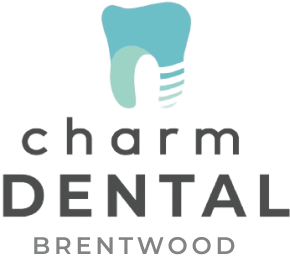

Do You Need a Tooth Extraction?
There are various circumstances where tooth extraction might be necessary, including:
- Removing baby teeth that do not fall out naturally.
- Extracting teeth to make room for orthodontic adjustments.
- Removing teeth that cause pain or are infected.
- Taking out a damaged tooth.
However, extraction isn’t always the only solution. If you’re dealing with tooth pain, there might be ways to alleviate your discomfort and preserve your tooth, especially if the problem is caught early.
Please contact us if you notice any of the following symptoms:
- Intense tooth pain.
- Increased pain when you apply pressure or chew.
- Stiffness or pain in your jaw.
- Swelling of the gums around one or more teeth.
- Symptoms of gum disease, including changes in color, bleeding, or a foul smell.
The Treatment Plan
A tooth extraction is a procedure conducted by a dentist or oral surgeon, typically completed in a single visit. Here’s what you can expect from the initial consultation to the extraction and follow-up care:
Initial Evaluation
Our dental team will first assess your symptoms and explore all possible options with you. This step ensures that removing a tooth is truly the best solution for maintaining the overall health of your mouth.
Extraction Procedure
The extraction begins with administering a local anesthetic to numb the affected area, ensuring you feel no pain during the procedure. If needed, sedation options are also available. Our oral surgeons employ a minimally invasive approach to ensure the extraction is as gentle as possible, prioritizing your comfort and speedy recovery.
Post-Extraction Care
Cost of Dental Extraction in Burnaby
The price of a dental extraction can fluctuate based on a variety of factors. For those covered by a standard insurance policy, the out-of-pocket expense for a tooth removal usually ranges from $100 to over $200. We are prepared to offer a preliminary estimate for you to share with your insurance provider to determine your potential out-of-pocket expenses. Without insurance, the cost per tooth can vary widely from about $200 to $600 or more.
It is difficult for dental offices to provide precise cost estimates over the phone as each patient’s treatment plan is unique and must be customized based on a thorough oral examination.
Dental extractions are generally categorized into two types, which can help clarify potential costs:
Contact us today
to schedule an initial consultation & exam.
Your consultation will include an examination of everything from your teeth, gums and soft tissues to the shape and condition of your bite. Generally, we want to see how your whole mouth looks and functions. Before we plan your treatment we want to know everything about the health and aesthetic of your smile, and, most importantly, what you want to achieve so we can help you get there.
Frequently Asked Questions
Tooth extractions are typically recommended due to severe decay, infection, or crowding. They may also be necessary if a tooth is severely damaged or to prepare the mouth for orthodontic treatment, which requires proper alignment and spacing of teeth.
Before undergoing a tooth extraction, you should provide your dentist with a full medical history and a list of all medications you take, including vitamins and supplements. You may be advised to avoid eating or drinking for a few hours before the procedure if sedation is to be used. It’s also wise to arrange for someone to drive you home if you’re receiving general anesthesia or deeper forms of sedation.
During the extraction, the area around the tooth will be numbed with a local anesthetic. If the tooth is impacted, the dentist may need to cut away gum and bone tissue that cover the tooth and then, using forceps, grasp the tooth and gently rock it back and forth to loosen it from the jaw bone and ligaments. For a more complicated extraction, such as surgical removal of an impacted tooth, more extensive procedures might be involved.
Recovery typically takes a few days. It is important to follow the dentist’s instructions, which might include taking prescribed pain relievers, applying ice to alleviate swelling, and eating soft foods. You should also avoid smoking, rigorous brushing near the extraction site, and drinking through a straw, as these can hinder the healing process.
While generally safe, tooth extraction procedures do carry some risks. These can include dry socket (where the blood clot at the extraction site fails to develop, or it dislodges), infection, prolonged bleeding, and damage to adjacent teeth or jawbone. Following your dentist’s care instructions can help minimize these risks.
Google Verified Patient Reviews






